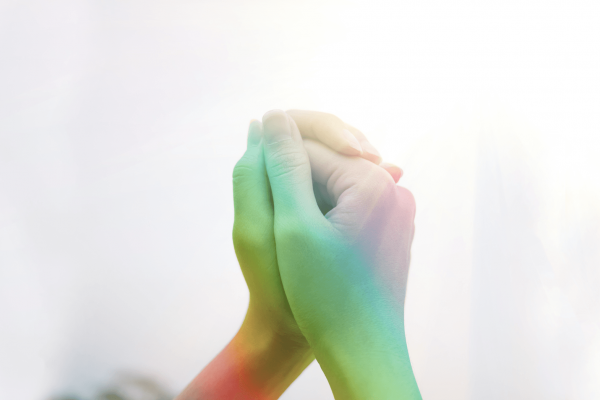On Tuesday, a group of 150 evangelical leaders representing the Council of Biblical Manhood and Womanhood released a document called the “Nashville Statement,” which delineates their conservative theological position on human sexuality and gender. The statement not only condemns those who are bisexual, lesbian, gay, and transgender, but also anyone who supports them — claiming that agreeing to disagree on human sexuality is sinful in itself.
Though little in the document is new, the response from countless other Christians — ranging from evangelicals to progressives — has been swift and emphatic. A number of statements have been drafted in response. One such statement, called “Christians United,” was organized by LGBTQ activist and theologian Brandan Robertson, and gained more than 1,000 signatures from around the world within its first 24 hours of being circulated.
That document contains a preamble and 10 articles of its own, which affirm the full spectrum of genders and sexual identities with statements such as, “WE AFFIRM that every human being is created in the image and likeness of God and that the great diversity expressed in humanity through our wide spectrum of unique sexualities and gender identities is a perfect reflection of the magnitude of God's creative work.” Moreover, in direct contradiction to the Nashville Statement, Christians United’s document also denies that “teachings on the Biblical interpretation of sexuality and gender identity constitute a matter of orthodoxy and should be a cause for division among Christians.”
Signatories of the LGBTQ-affirming statement include Bishop Yvette Flunder, interim head of Gay Christian Network Isaac Archuleta, pastor John Pavlovitz, and bisexual Christian activist Eliel Cruz.
Robertson offered Sojourners the following statement about the goal of the Christians United response:
Christians United is an effort to show that Christians are not of one mind on LGBT+ inclusion, and that the leading edge of the Church is united for the inclusion and acceptance of sexual and gender minorities into the life of the Church. The Nashville Statement represents one segment of the Christian world, a segment whose perspective has quickly shifted from the majority perspective to a minority perspective in our culture over the last decade. However, it's often the non-affirming voices that get all of the attention. Christians United is an effort to show just how many international Christian leaders, theologians, and lay people stand firmly against the sin of exclusion and are ready to swing open the doors of our churches to embrace absolutely everyone. I believe this moment is being cultivated by the Spirit, and the response has been breathtaking! I hope Christians United will stand as a bold witness to LGBT+ people around the world, saying ‘There is room for you in our churches for you!’ which is a message that many have never heard before.
Rev. Dr. Flunder, who serves as presiding bishop of The Fellowship of Affirming Ministries and signed the Christians United response, also offered a statement on the Nashville document:
A predominantly white male coalition of Southern Baptists and Evangelicals have defined human sexuality in the binary that secures their power, with a selective tortured reading of the Bible texts on human sexuality from a time when a woman was her husband's property. The Bible deserves interpretation, not simply quotation. This is the same denomination that once used the Bible to condemn inter-racial marriage and to defend the 'Godliness' of chattel slavery. They had to repent. They will need to repent again
In addition to the Christians United statement, a number of other responses to the Nashville Statement are being published and circulated. Here’s our round up of some of the top responses:
Sojourners’ own president, Jim Wallis: Nashville Statement Damaging to People and to the Evangelical Witness.
Pastor and writer Nadia Bolz-Weber and her Colorado congregation offer a point by point refutation called the "Denver Statement."
Michael Gungor and Mike McHargue of The Liturgists drafted a statement called “God is Love” with signatories including Christian writers Rachel Held Evans, and Nish Weiseth, among others.
The Rev. Jacqueline Lewis of Middle Collegiate Church in Manhattan offers a response called “A Nazareth Statement.”
Faithful America is circulating a petition that currently has more than 16,000 signatures.
Christian pastor and blogger John Pavlovitz offers his own “plain language translation” of the Nashville Statement.
"To me, it's not interesting or surprising. It's just the same thing they've been saying for years, and it's not even well-written," tweeted Matthew Vines, gay Christian activist and head of The Reformation Project. "... You have to be pretty disconnected from our culture to think that being anti-LGBTQ is the main message the church needs to be spreading now."
Got something to say about what you're reading? We value your feedback!
